Risk, Isolation & Survival in Plagued Times
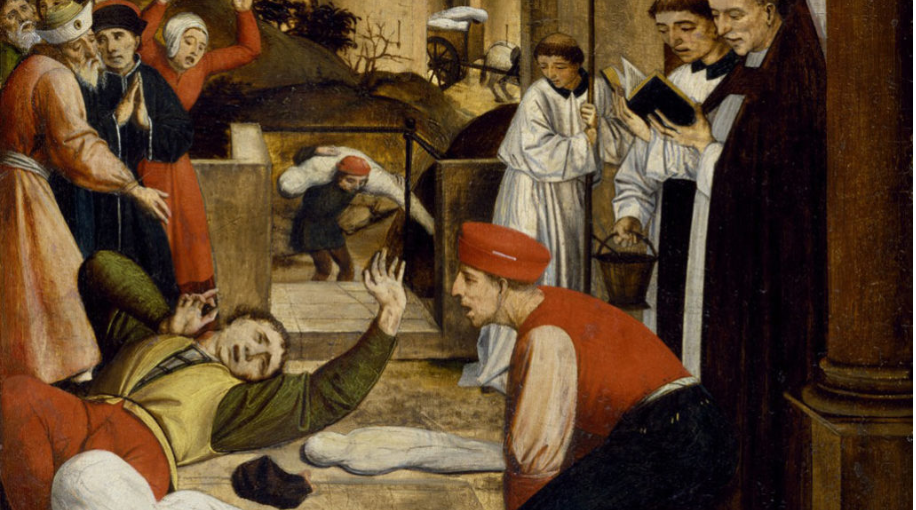
It seems we are living through a massive crisis which will change us forever. It has hit quickly. Suddenly, we are being addressed by our leaders in tones reminiscent of wartime. Our elderly and vulnerable are most at risk: some of us will become sick ourselves (perhaps very sick), lose loved ones, bury colleagues. The hugely painful life lessons that come to all of us eventually – illness, disease, isolation, death, grief – seem to be loudly knocking at the door. Too soon, we are being forced to open up to brutal realities that most of us find extremely challenging and painful. And worse, we are now being told how to act and how to behave. We have to self-isolate (if you are like me and one of those who are most at risk due to chronic illness or age). We have to stop doing the things we love (attending sporting events, going to theatres or cinemas and eating in restaurants) and soon all of us will be forced to stay away from our fellow human beings as universal “social distancing” measures become mandatory.
Clearly, Covid-19 may be mild for most people but this is to forget the wider implications of spreading the disease and the knock-on effects on many people who will not be fine (perhaps elderly parents or grandparents). People like me with lung disease for whom the virus would almost certainly be catastrophic, will stand no chance in any triage process for the few ICU beds available (as the experience in Italy already shows) and the weakest and eldest (and probably also the poorest) will be left to die at home or in corridors.
How do we respond to a threat like this?
Whether or not we actually face losing someone we love or we just have to change our own behaviour, our nervous systems will react and mount a defence, just as it is biologically programmed to do, in its primary objective to keep us safe. However, sometimes it doesn’t appear that way to others. We will react both emotionally and physically. Anger, fear, resentment and denial – these are all reactions that are all already visible not just in my own circle but in the world around me. We are all primed with this ancient fight/flight/freeze survival response and it affects no two people the same way.
Some people will feel physically sick or weak and obsess about the virus whilst others will go into denial or try and minimise it by making (erroneous) comparisons to seasonal flu, somehow thinking this is all about others and not about them. Others genuinely will not care, rationalising that we all have to die sometime anyway. Panic buying of loo paper, a rush on hand sanitisers and other goods, being dismissive or hurling accusations of fear mongering – all responses to the stimulus of fear, all of us trying to survive in the best way we can. Psychosomatic reactions are inevitable as people unused to illness will be hypervigilant and become convinced they are about to die. What is needed at these frightening times is a huge soothing dose of tolerance, understanding, kindness and compassion.
How did I, as someone with chronic disease, weigh up the risk?
As someone with multiple “co-morbidities” including lung disease, this crisis has hit me very hard. I quickly had to pass through all the emotional stages of sudden change or grief – denial, anger and bargaining – to reach an acceptance of the reality to avoid putting myself at huge risk. I rapidly had to weigh up that risk and, as someone who had a career in risk management within the adventure travel industry, I knew how to approach it. It is a surprisingly simple formula at its most basic level: you balance probability against the consequences.
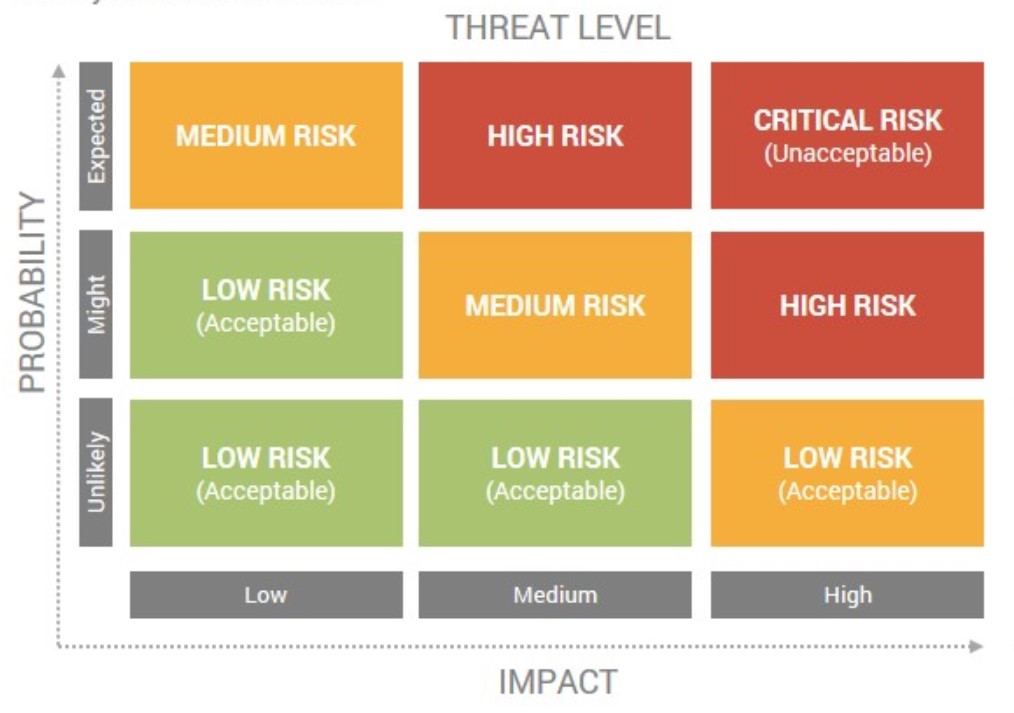
When I first self-isolated, the probability of being infected was “unlikely” (it is now, only 10 days later, probably “might” or “expected” on the vertical axis in the matrix). Due to my lung disease, the impact of any kind of Covid-19 would be catastrophic. In all likelihood, I could not survive for long with the further damage this (or any serious) infection would cause to my lungs.
So, I had no choice – and even less now. I had to keep the probability low. Since then, I have been self-isolating, despite a strong inner resistance. I knew a protracted lack of connecting to others would be potentially very distressing. In spite of these contrary drives, however, my cognitive, rational mind knew self-isolation was the only decision I could make if self-preservation was my primary objective. I cancelled all further engagements, voluntary work, course workshops, massage clients, theatre and opera (all now cancelled anyway) – all deeply social activities which are integral tools in my box of sanity.
So how do I feel about the idea of isolation?
Personally, for me there are certain triggers that have historically guaranteed to provoke me and bring on bouts of defensive aggression and swearing: any thoughts of isolation and almost all advice about how I should best protect my health, remembering of course that all through my childhood, infection control was a huge issue due to my immune disease. My mother was often contorted with worry and, following doctors’ advice, kept me away from other kids for long periods of time. I was not only extremely “bonny” as a child but also very determined and headstrong, just like my mum! We fought often, and she spent many a night manically scrubbing the house from top to bottom. Whilst the voracity and frequency of these isolation measures reduced in time, constant worry about bacteria, health and hygiene have pursued me my entire life. Rebellion and resistance are all very common for people born into this kind of atmosphere and who have genetic, life-limiting disease. We react against the smothering, over-protective nature of our loved ones and much to their distress, it is not unusual to go into heavy denial for long periods of time – often years or decades – and often with detrimental consequences in an effort to take control of body, mind, spirit – and destiny.
How does isolation feel to me now, aged 48?
Eleven days into it and my body is giving my cognitive, rational mind hell. Even under “normal” circumstances, I constantly feel like I have flu anyway and moving around is tough, requiring a lot of mental and physical effort. I had often thought about whether I was biting off more than I could chew with the activities I undertake but knew I had to keep moving around physically for fear of seizing or giving up, both physically and mentally. I go out of the house to temper my physical symptoms and reach out to groups of people to temper my mental ones. I am a tactile person also and, as a biodynamic massage therapist, I use attuned touch to help people reduce their stress and heal their bodies. In a world where touch is becoming taboo, the last thing we all needed was something else to increase the physical barriers between each other. Being forced into isolation in this way for the first time since I had my bone marrow transplant 46 years ago, has started to make me very agitated and anxious as once again, I can only wave at people through windows – it is just that now they are electronic ones!
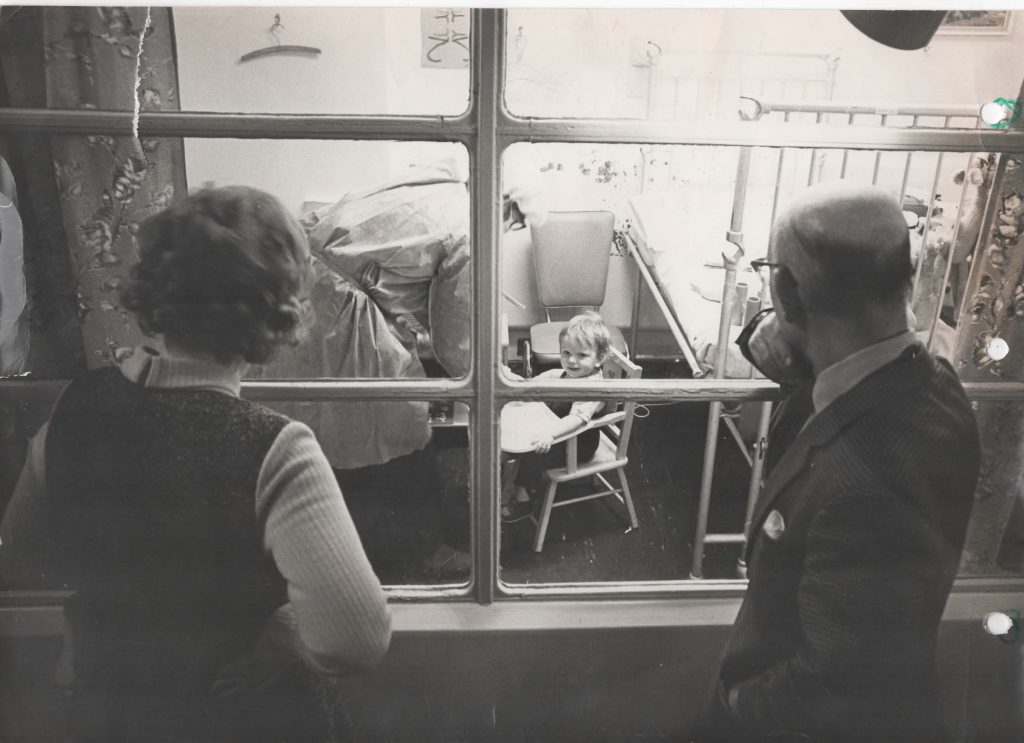
All this has worsened existing physical symptoms and created others as my anxiety and frustration increases, especially as the government advice escalates and the TV and radio blurt out warnings of worsening contagion, the virus descending upon us like a biblical plague.
An uncomfortable paradox
Reflecting on this, I can see that spiking anxiety is playing havoc with my mind and body due to various fears around entrapment, isolation and ultimately of course, death. These are all symptoms of the trauma in my past. So, what then is considered effective in combatting strong fear, anxiety and a sense of isolation which can be so physical in nature? There are many things but one of the most effective is connection with others and social engagement!* We can calm our physiological responses and begin to feel safe by connecting and engaging with trusted others, as we respond favourably to their faces and their energy. So, we find ourselves in a double bind – in a sort of odd catch 22. We experience fear and anxiety but to reduce it, we need to engage with others socially the very thing we are being asked to avoid.
What can we do to cope?
The challenge for us in these times of isolation is to try and stay connected to people as much as we can in any way we can, whilst reducing our physical contact with people temporarily. For me and for anyone with a chronic disease, it means almost total isolation until the peak of the contagion has passed but for many, it means sticking to the rules about symptoms rigidly and reducing contact to those most near and most dear. Online groups, phoning or skyping and community-based projects supporting the most lonely and the most vulnerable – these are all ways we can get through this situation. Also important is that we try to help each other understand our fears, feelings and reactions and to try to help each other to talk about them. This may be against what we British do in terms of that stiff upper lip, yet vocalising what you are feeling causes chemical changes in the brain which are proven to reduce the intensity of fear and anxiety.
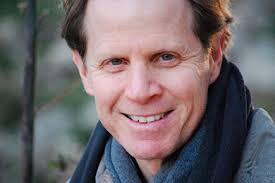
Dr Dan Siegel
As my favourite (well, the only one I know!) interpersonal neurobiologist and psychiatrist, Dr Dan Siegel says in this short clip, “you gotta name it, to tame it!”
It is vital at these times, when we feel resistant to changing our lifestyle to remember that this is all temporary but essential. The social distancing measures announced too late by this government are designed to avoid hospitals being overwhelmed (as they have elsewhere), leading to people dying unnecessarily in corridors from lack of treatment. If being at home and reducing social contact becomes too much for you, perhaps try and find ways to engage your mind and body. Going outside (at a safe distance from people) is for me, imperative and I can be seen on my mobility scooter circling a park near you, taking in the birds, trees and the onset of Spring!
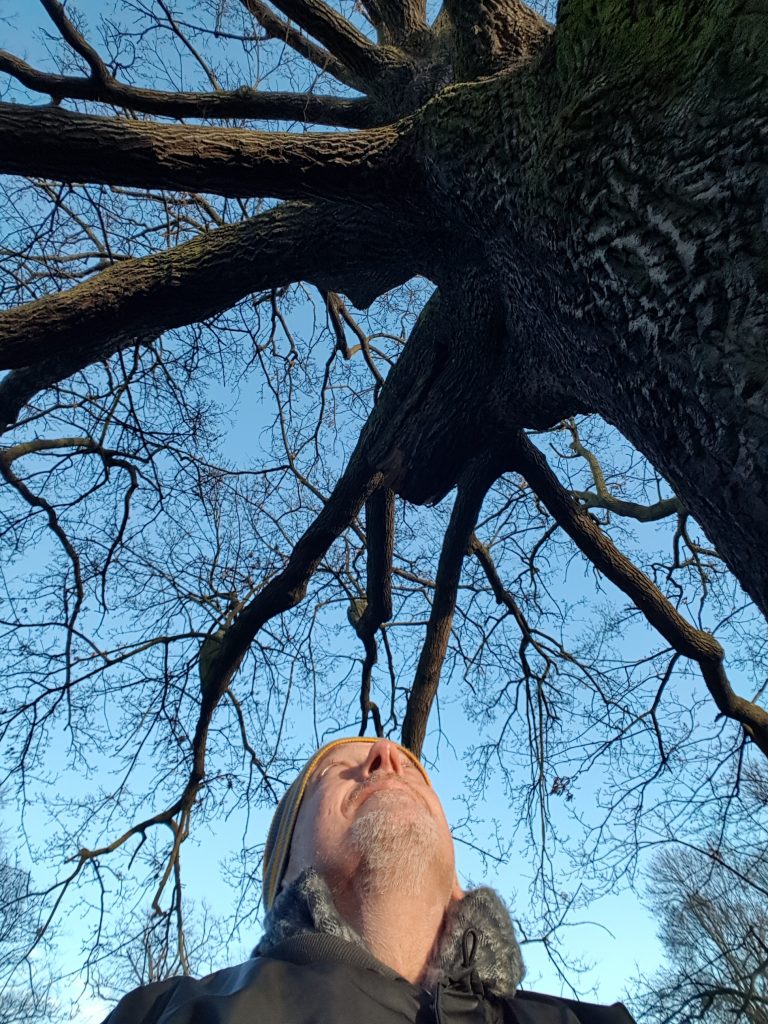
I do feel frightened and frustrated – like a caged tiger. It’s all very well for me to sit here and write this but I assure you I am speaking from personal experience when it comes to the fear and overwhelming anxiety this epidemic brings with it. I am not alone, as friends tell me they have hot flushes, go hot and cold as their chest seizes up – all symptoms of that same response we all have to any threat. Yet, I feel better equipped to cope with this current situation due to my understanding of all the weird bodily sensations, pain and physical manifestations of anxiety that I am experiencing and I use strategies to help temper them. You need to know your enemy and what is most effective for you. I am spending a good part of each day stretching, meditating and calming mind and body using Eastern practices such as yoga and Qi Qong. Anything which helps to coordinate the breath with gentle movements of the body is good for slowing the frenzy of our busy minds and getting the nervous system back into “rest and digest” as opposed to “fight/flight/freeze.” Others need to blow off steam with strenuous activity – this is fine but take care to also slow down too. There are plenty of beginners’ routines to choose from and I have included a few of my own personal favourites below. Furthermore, I am thinking about all the various books and reading I need to catch up on – not to mention of course, all the writing I want to do. I need five more lifetimes to accomplish everything I would like to, let alone five months of isolation. (OMG, I feel stressed again now!)
I have had to develop these strategies for myself to survive what has happened to me in the last 10 years so in some ways, this is now time to lean-in more to those disciplines. They are all easy and toxin-free measures that can help and improve your physical and mental symptoms. Most importantly though, as trite as it may sound, it seems important to me to maintain a high level of kindness and compassion – finding forgiveness for myself and others. It feels important to be gentle towards people (and animals) as an expression of caring more for others, the world and myself. I hope I see the other side of this debacle as I am not ready yet to leave this life – in some ways, I feel I am just finding who I really am – there is more work to do.
* Thanks to the ground breaking work of Dr Stephen Porges and the development of polyvagal theory, we understand more about the role of social engagement in helping survivors of trauma cope with their symptoms. The theory describes how visceral (bodily) experiences affect the nervous system and our resulting behaviour.
2 Replies to “Risk, Isolation & Survival in Plagued Times”
Nice blog here Also your site loads up very fast What host are you using Can I get your affiliate link to your host I wish my site loaded up as quickly as yours lol
I’ve learned so much from this blog and have implemented many of the tips and advice into my daily routine Thank you for sharing your knowledge!